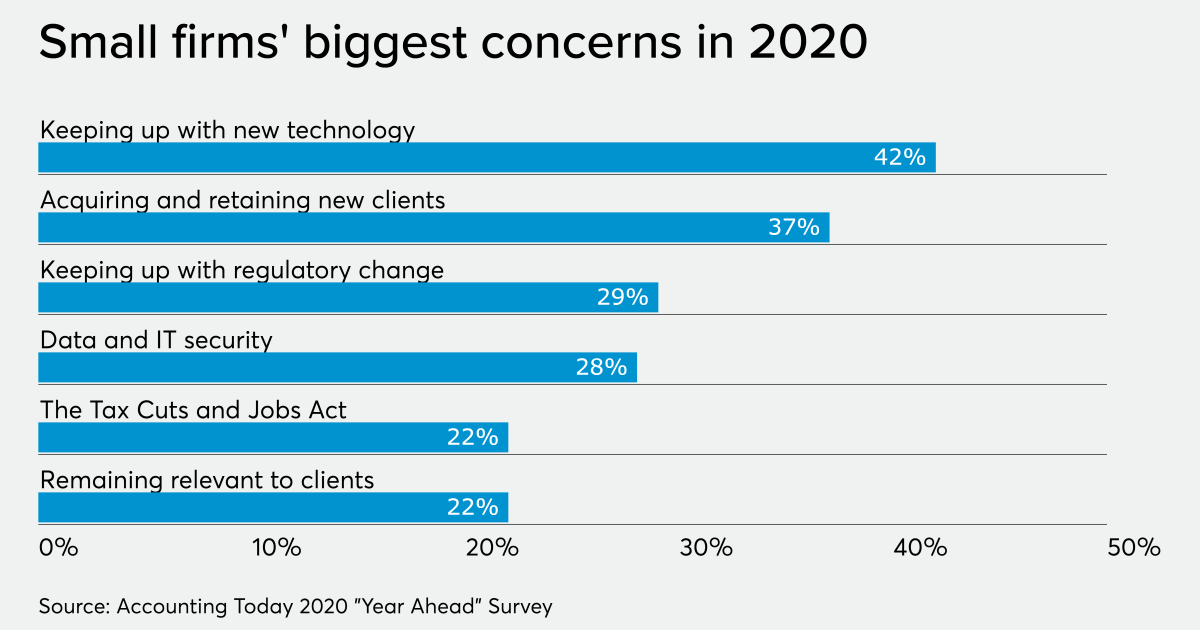
I believe the future of the small accounting firm is bright and secure. Right now there are many challenges such as the coronavirus pandemic, along with extremely unsettling moments, unpleasant client interactions, cash squeezes and an overload of new things that have to be learned in a miniscule time. However, I’ve spoken to many owners of, and partners in, small firms and see an optimistic future.
- Everyone I spoke to had a great attitude and still loved what they were doing, in spite of all the pressures they were facing.
- They were all learning new things quickly and feeling under pressure, but were satisfied with their accomplishments and how they were able to meet the new challenges and help their clients.
- They weren’t lamenting the losses and the problems but were applauding the successes.
- However they were set up and, however much they fought becoming virtual, they all adapted to it quickly. No one seemed to have a perfect set up, but they all rose to and met the challenges.
- Every firm I spoke to was functional and getting tax returns done, and financial statements completed, and assisting clients with Small Business Administration (SBA) and Paycheck Protection Program (PPP) applications.
- While there was an initial feeling of devastation, it quickly subsided. Things are still terrible, but getting the work done is therapeutic.
- Clients that had the money were paying. Clients that did not have apologized and asked for forbearance. Those that have always tried to bargain down the fees have continued, although now there is less patience to deal with that process, which was never a game to them (as it was for the grudging client) since it was how they were earning their livelihood.
- The staff, without exception, were loyal and hardworking and rose to whatever was needed for them to do. Large firms talk about culture. Small firms don’t talk about it but have culture squared, and any large firm would be envious of that.
- Clients need certain deliverables and are getting them, but what they have really needed was reassurance, support, confidence and counsel from their trusted advisors, which the small firm owners and partners have always been: unstinting, unselfish and generous with their time and always available.
On a personal note I have the highest admiration for every small firm accountant I have spoken to. They were all on top of the Secure Act and CARES Act, the SBA, the PPP and other programs. They learned it as they always have — out of necessity because their clients relied on them. And they learned it quickly, the way they always did. They had a job to do and they just sat down and did what accountants are trained to do. They got the application, collected everything they would need, started filling it out, one box at a time, and they got it done. It was what I call OJT: on the job training. It works very well. I applaud all of them.
Small-firm accountants have an important role, and they will not be displaced by overload from new laws and regulations, increasing (and unfair) large company GAAP they are forced to adhere to for their small business clients, simplified tax forms (which are a myth), and an ever-changing tax system. They are essential to their clients.
The public accounting profession comprises 46,000 firms, of which 45,500 are considered small firms, i.e., those with 30 or fewer staff. The strength of the accounting profession is the individual strength of each owner and partner of a “small” accounting practice. Their diligence, care and interest in doing a great job for their clients, and the loyalty of their staff in following their lead, are unmatched anywhere.
Do not hesitate to contact me at emendlowitz@withum.com with your practice management questions.
Edward Mendlowitz, CPA, is partner at WithumSmith+Brown, PC, CPAs. He is on the Accounting Today Top 100 Influential People List. He is the author of 24 books, including “How to Review Tax Returns,” co-written with Andrew D. Mendlowitz, and “Managing Your Tax Season, Third Edition.” Ed also writes a twice-a-week blog addressing issues that clients have at www.partners-network.com along with the Pay-Less-Tax Man blog for Bottom Line. Ed is an adjunct professor in the MBA program at Fairleigh Dickinson University teaching end user applications of financial statements. Art of Accounting is a continuing series where Ed shares autobiographical experiences with tips that he hopes can be adopted by his colleagues. Ed welcomes practice management questions and can be reached at (732) 743-4582 or emendlowitz@withum.com.
Leave a Reply